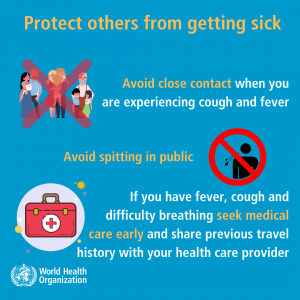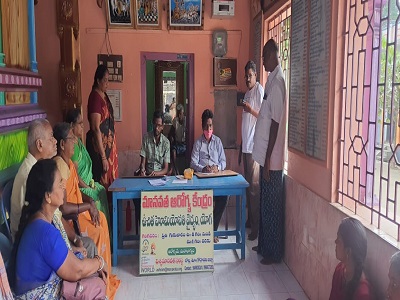Covid 19
Introduction
On December 31, 2019, China informed the World Health Organization of a cluster of cases of pneumonia of an unknown cause in Wuhan City in Hubei province. On January 9, 2020, the WHO issued a statement saying Chinese researchers have made “preliminary determination” of the virus as a novel coronavirus.
Since then, more than 6,000 deaths have been reported due to COVID-19 across the world till March 20, 2020. Cases have been reported from more than 180 countries, including India. Lockdowns, curfews, massive airport screenings, quarantines, and social distancing have become the norm across the globe.
What are Coronavirus?
Coronaviruses are a large family of viruses with some causing less.
severe common cold to more severe diseases such as severe acute respiratory syndrome (SARS) and Middle East respiratory syndrome (MERS). The SARS-CoV-21 is a coronavirus very similar to the one that caused SARS.
Many coronaviruses are zoonotic, meaning they are transmitted from animals to humans. While the SARS coronavirus is thought to be an animal virus from an as-yet-uncertain animal reservoir, perhaps bats, that spread to other animals (civet cats) and first infected humans in the Guangdong province of southern China in 2002, the MERS coronavirus was passed on from dromedary camels to humans in Saudi Arabia in 2012.
There is evidence that the SARS-CoV-2 has also been transmitted from bats.
Difference Between Coronavirus and Covid 19
- Definition: Coronavirus is a large family of viruses that causes illness ranging from mild to severe respiratory diseases.
- Nature: Coronavirus is disease-causing agent.
- Severity: Causes mild to severe respiratory illiness.
- Definition: COVID 19 is a novel coronavirus disease first reported in December 2019 and ongoing outbreak in the world.
- Nature: COVID 19 is respiratory illness.
- Severity: Can have potentially serious complications, such as trouble breathing and pneumonia.
Understanding The Disease
The World Health Organisation has declared COVID-19 to be a pandemic . The symptoms of COVID-19 appear within two to 14 days after exposure and include fever, cough, a runny nose and difficulty in breathing.
How does the disease spread?
It primarily spreads through the respiratory droplets of infected people. If a person touches a surface or object that has been infected by the virus and then touches his own mouth, nose, or eyes, he may get infected.
Who is affected?
While people of all ages can be affected by the disease, people aged 80 and above are at the highest risk of dying due to COVID-19, according to case records analysed by the Disease Control and Prevention Centers in China and South Korea. Victims of the virus with pre-existing medical conditions such as cardiovascular disease and diabetes have a higher fatality rate than others. Also the rate of fatalities was relatively higher for retirees.
Protecting Yourself Against COVID-19
Washing With Soap
The grime on our hands contains innumerable viruses and bacteria. Washing with water without using soap helps reduce the amount of microbes but does not remove most of the virus and bacteria completely. Using soap, therefore, becomes far more effective in removing microbes.
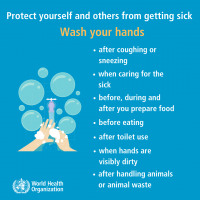
Using a mask
Medical masks help prevent the spread of coronavirus infection. If worn properly, masks may be effective in preventing transmission of coronavirus. An article published in the Journal of the American Medical Association (JAMA) says there is no evidence to suggest that masks worn by healthy individuals can help prevent infection.
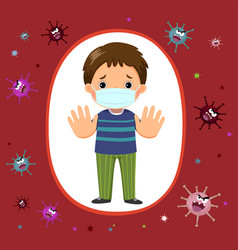
Social distancing
The WHO says that you should maintain at least 1 metre (3 feet) distance between yourself and anyone who is coughing or sneezing. This is because when someone coughs or sneezes they spray small liquid droplets from their nose or mouth which may contain virus. “If you are too close, you can breathe in the droplets, including the COVID-19 virus if the person coughing has the disease,” says the WHO.
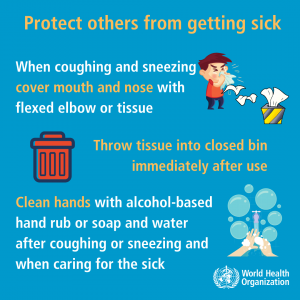
Avoid touching eyes, nose and mouth
Hands can pick up viruses as they come in contact with many surfaces. It can then transfer the virus to your eyes, nose or mouth. From there, the virus can enter your body and can make you sick.
Practise respiratory hygiene
Cover your mouth and nose with your bent elbow or tissue when you cough or sneeze. Then dispose of the used tissue immediately.
